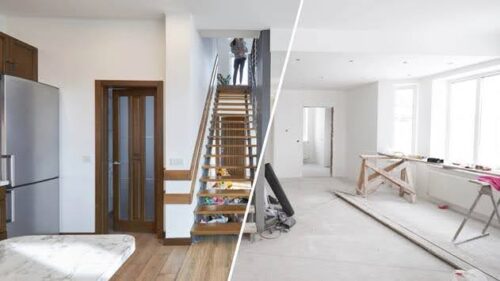Home renovations can be exciting, but without the right planning and knowledge, they can also turn into a costly nightmare. From budgeting blunders to legal oversights, common home renovation mistakes can lead to wasted time, money, and stress. In this guide, we’ll share essential home renovation tips to help New Zealand homeowners avoid these traps and ensure a smoother, more successful upgrade.
10 Home Renovation Tips
1. Conduct Property Inspections
Before starting any work, it’s crucial to understand what you’re working with. A professional building inspection can uncover hidden issues like water damage, outdated plumbing, or structural problems, especially in older homes. Skipping this step is one of the most overlooked home renovation mistakes.
2. Establish a Realistic Budget
Don’t just budget for the visible costs. Always plan for an extra 10-20% buffer to cover unforeseen expenses such as asbestos removal, electrical upgrades, or termite treatment. Renovation costs can escalate quickly if you’re not prepared.
3. Prioritise Quality Control
Ensure that every stage of the renovation meets a high standard. Schedule regular check-ups and don’t hesitate to raise concerns if the work doesn’t meet expectations. Cutting corners now could cost more later.
4. Set Clear Standards
Clearly outline expectations for workmanship, timelines, and materials in writing. This helps avoid disputes and ensures everyone is on the same page throughout the renovation.
5. Plan for Potential Issues
Common renovation pitfalls include discovering rot in walls, old wiring, or uneven flooring. Building in flexibility for such issues allows for faster decision-making when surprises arise.
6. Get Expert Advice
Consulting professionals such as architects, engineers, and qualified builders can save you from expensive mistakes. Jim’s Building Inspections New Zealand offers expert assessments that give you peace of mind and ensure you know what you’re getting into.
7. Understand Legal and Compliance Requirements
Familiarise yourself with New Zealand’s building codes and council regulations. Non-compliance can halt your project or lead to fines.
8. Obtain Necessary Permits
Ensure you have the correct permits before commencing work. Whether you’re adding a deck or altering your home’s layout, getting council approval helps avoid future complications.
9. Communicate Effectively with Contractors
Good communication can make or break your renovation. Use written contracts that detail the scope of work, deadlines, costs, and responsibilities to ensure transparency.
10. Consider Future Resale Value
Not all improvements add value. Avoid overly personalised changes that might not appeal to future buyers. Think about what renovations will offer the best return on investment.
Conclusion
Home renovations require more than just enthusiasm. By planning carefully, understanding legal requirements, and seeking expert guidance, you can avoid the most common home renovation mistakes. Jim’s Building Inspections NZ is here to support your renovation journey with thorough inspections and expert advice.
FAQs
Verify their qualifications, check references, and ensure they have experience with similar projects.
Be aware of potential issues like asbestos, outdated wiring, and structural weaknesses.
They identify hidden issues early, allowing for timely and cost-effective solutions.
A handover inspection is a final check to ensure all work meets agreed standards before you take possession.
A pre-purchase building inspection is done before finalising the purchase to identify any potential issues with the property.
Underestimating costs, skipping inspections, and failing to plan for permits are among the most common home renovation mistakes.
Aim to add 10-20% of your total budget to cover unexpected issues.
Talk to your local council or work with qualified professionals familiar with local building codes.
Not always. Minor cosmetic changes might not need permits, but structural or layout changes usually do.
It gives you a clear understanding of the property’s condition, allowing you to plan better and avoid hidden problems.



